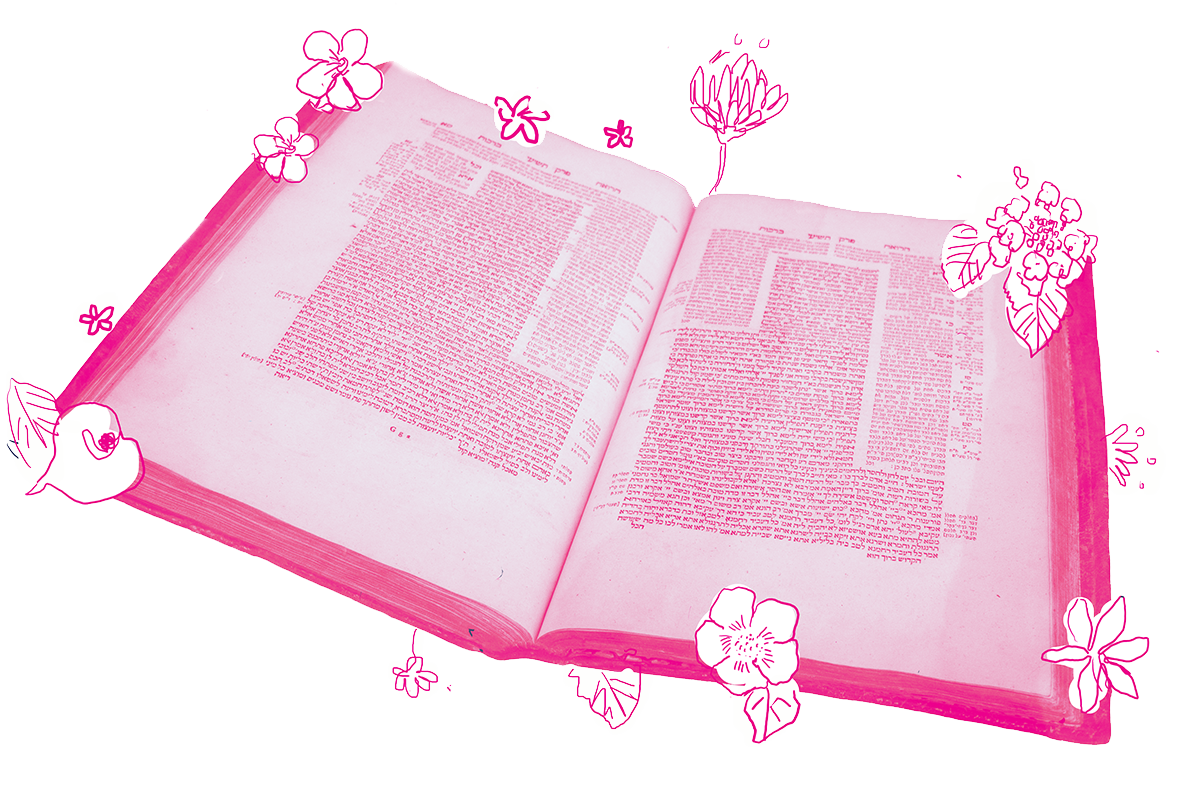Scattered throughout Jewish texts are numerous enthusiastic declarations about shalom— peace. “Great is peace!” they each begin, followed by further explanation and a biblical proof text. In Vayikra Rabbah, a late rabbinic commentary on the Book of Leviticus, Rabbi Shimon bar Yochai says that peace is great because it includes each and every blessing, while Rabbi Hizkiyah posits that peace is great because it includes each and every commandment. In Tractate Yevamot Rabbi Yishmael points out that when Sarah worried aloud that her husband Abraham was too old to father children (Genesis 18:12), God reported to Abraham that Sarah was concerned about her own age (18:13) — proving that keeping the peace in a long-term relationship supersedes strict truth-telling. Centuries later, the philosopher and halakhist Moses Maimonides writes in the Mishneh Torah that peace is great “since the entire Torah has been given to create peace in the world.”
Today’s daf deploys this same formula to extol the virtues of teshuvah — repentance. “Great is repentance,” agree four rabbis, but for different reasons. Let’s start with Rabbi Yohanan:
Rabbi Yohanan said: Great is repentance, as it overrides even a prohibition of the Torah. How so? It is stated that God said: …If a man sends away his wife and she goes from him and becomes another man’s, may he return to her again? Will not that land be greatly polluted? But you have committed adultery with many lovers; and yet you return to me. (Jeremiah 3:1)
The biblical prophet Jeremiah often and loudly bemoaned that Israel had turned away from God, frequently employing a marriage metaphor — God being a spurned husband and Israel a wayward wife. In this passage, Jeremiah reminds us that Deuteronomy 24:4 explicitly prohibits a former husband and wife from reuniting as a couple if the wife has since married another man. And yet, Israel does return to God — an act that would override the law of Deuteronomy, were we to take this metaphor to its logical conclusion. That, says Rabbi Yohanan, is the power of repentance: It overrides even biblically mandated constraints, allowing God and the people Israel to recommit to each other.
As the page continues, other rabbis continue extolling repentance. Rabbi Yonatan tells us that repentance will hasten the final redemption, the messianic era. Reish Lakish offers a beautiful midrash that says repentance has the power to convert intentional sin, which carries the weight of heavy punishment, into unintentional sin — a mere “stumbling” — and thereby soften the punishment. The Gemara also knows of a different version of Reish Lakish’s teaching in which repentance carries an even more potent power — it can convert intentional sins into merits. It’s as if repentance has the power to downgrade a speeding ticket, which gives you negative points on your license in addition to a sizable fine, to a summary offense for not wearing your seatbelt — or even convert it to a Most Improved Driver award.
The final teaching comes from Rabbi Shmuel bar Nahmani, who quotes Rabbi Yonatan as follows:
Great is repentance, which lengthens the years of a person’s life, as it is stated: When the wicked man turns from his wickedness that he has committed, and does that which is lawful and right, he will preserve his life. (Ezekiel 18:27)
So there you have it: Repentance is great. It breaks down seemingly impossible boundaries, it converts sins into merits, and it lengthens one’s life. For this reason, Yom Kippur is not just one of the most solemn and awe-filled days on the Jewish calendar; it’s also one of the most ecstatically joyful.
Read all of Yoma 86 on Sefaria.
This piece originally appeared in a My Jewish Learning Daf Yomi email newsletter sent on July 6th, 2021. If you are interested in receiving the newsletter, sign up here.
The post Yoma 86 appeared first on My Jewish Learning.




